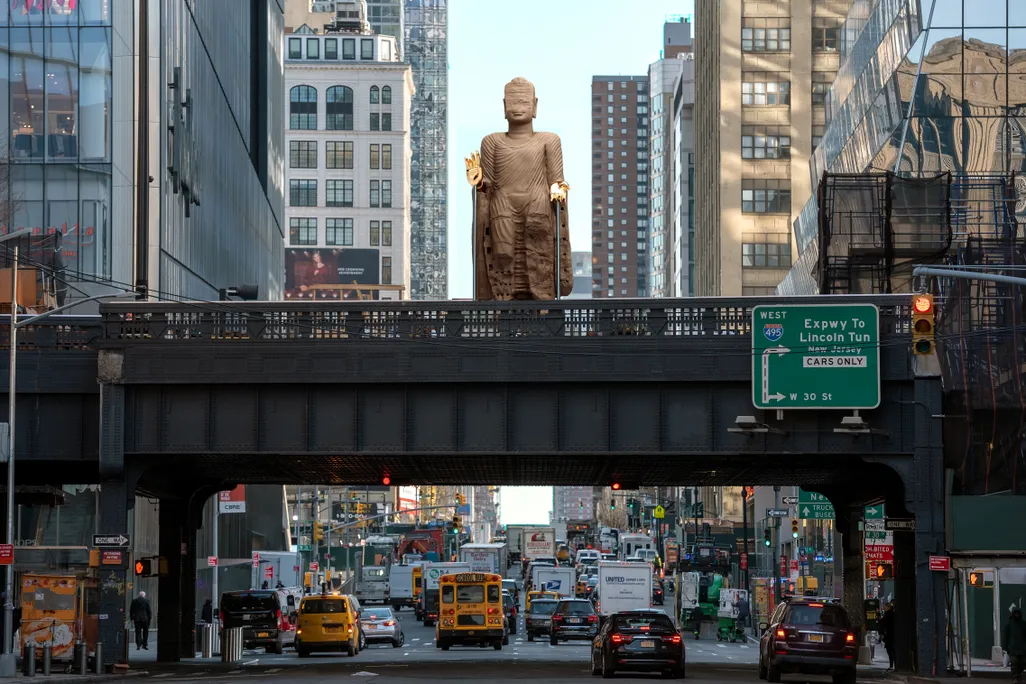It’s hard not to marvel at a good reunion story — those rare instances when the barriers of emotional baggage, bureaucracy, borders, and the passing of time are broken down in the search for a long-lost family.
My China Roots is in the business of making these odds-defying endeavors a reality for Chinese people worldwide. It’s their proverbial bread and butter — or, uh, bao and BBQ.
Erin Ross is one such success story: A Chinese-Brazilian millennial, Erin grew up in California, where her unique cultural background often drew curiosity from her peers.
With the help of MCR, she was able to locate relatives in China who, for generations, were estranged by circumstances beyond her control. Erin’s story is of not one but two improbable pursuits in which defying the odds are, oddly enough, a defining feature. And it all begins with her grandfather, Chen Yiwei.
“He was a trailblazer in every way,” Erin says proudly of her late grandpa. Her parents describe him as quiet and stoic, but she remembers Chen as a warm presence in her life.
“Of all the grandkids, I was the only one to ask, ‘Grandpa, can you give me my Chinese name?’”

Chen didn’t take the request lightly. He gave Erin the auspicious title of Si Zhong (思中), which carries the dual meaning of being ‘in midthought’ and ‘missing China’ — an ever-present sentiment in his years away from home that would also come to define the life of his granddaughter in the coming decades.
From China to Brazil
Chen grew up in the mountainous province of Hunan in South-Central China. Despite being his family’s youngest son and in a village with limited access to education, he attended a boarding school outside his hometown. By age 12, he was the most educated person in the community.
Two years later, amid the chaos of the Chinese Civil War, Communist-Nationalist fighting blocked Chen’s path home from school, severing communication between the 14-year-old and his family.
Unable to return home, he followed a neighbor to Taiwan and continued his education, eventually becoming the first member of his family to graduate with a degree in English.
Upon graduation, a friend offered Chen a teaching job in Brazil, and he decided to take the leap. He moved to Rio de Janeiro, learned Portuguese, opened a neon sign business, and started a family of his own.
Today, Brazil is home to 200,000 to 300,000 Chinese people, the majority of whom are based in São Paulo. The country even recognizes August 15 as Chinese Immigration Day. But like many Chinese emigrants who moved to Brazil to pursue a better life, political strife would upend Chen’s life again.

In 1964, Brazil faced a military coup that led to crippling economic instability and inflation throughout the 1970s and ’80s. Amid the hardship, Chen relocated to the United States, where Erin would later be born.
“He was very strong to handle all of that. And smart! He spoke four languages and married an educated girl from a higher social class,” Erin recalls. “My grandma comes from a family of doctors and high political figures. My grandpa comes from very little. He had to be super open-minded.”
Returning Home
But in all his years away from home, Chen’s desire to return to China, to reunite with his family, never faded. More than 35 years after he left his homeland, that dream became a reality.
It would be years before Erin understood the full story of her grandpa’s journey home. Still, she had long cherished two photos of Chen and his brothers taken on that visit, along with a wedding photo of her grandparents before they departed from Brazil.
Chen sadly died of Parkinson’s disease in 2017, and with his passing, much of his family history remained a mystery.
“I always dreamed of going back to his hometown with him,” says Erin. “When he died, my dream was gone too.” Instead, she poured her grief into the pursuit of a master’s degree in engineering. After graduating, however, she decided it was time to begin her search.
“I got sick of waiting and thinking I’ll do it later. I’m just going to do it!”
— Erin Ross
Erin wrote a detailed post explaining her situation and recruited friends to share the text on WeChat, China’s ubiquitous social media platform. Nonetheless, she knew the odds were against her.
“That’s when I knew I had to find a company. I Googled, and My China Roots came up,” she says.
Erin connected with MCR researcher Liu Jingwen, who wasted no time getting to work. Liu contacted every organizational level of the Federation for Returned Overseas Chinese, from the Hunan provincial office to the Henyang city office, but heard nothing for a month. As it turns out, the federation forgot to pay their phone bills and had their lines cut.

Incredibly, when Liu finally did make contact and got officials on board with the search, it took only two hours to find Chen’s family. At 10 AM, they shared his photo in a WeChat group for village leaders; by noon, they had made contact.
“When we got the news, my mom couldn’t believe it,” says Erin. “Fifteen more cousins? This must be a dream!”
Finally, Erin learned the story behind the photos she had long cherished of her grandpa.
In 1981, Chen made the journey from Brazil to Hong Kong with little more than the clothes on his back and some mementos to ease the long-overdue reunion. From there, he met a relative who guided him back to his village.
“It was otherworldly for him to return. His whole family had thought he was dead,” says Erin. “When he came back, everybody was crying. Cousins, second cousins — he met family [members] he didn’t even remember.”
Finding Family
Erin soon learned that in the years since her grandfather’s return home and relocation to the U.S., her family in China had also been searching for Chen and his relatives abroad. Through the U.S. Embassy, they even managed to find his first address in California, but after learning of his passing, they feared it was a lost cause.
“They had records I had no idea about,” she adds. “A zupu [family tree book] that my mother’s cousin wrote up… and the letters and photos my grandfather brought back by hand. I could recognize his handwriting.”

In getting to know her Hunanese kin and rediscovering her heritage, Erin’s reverence for her grandfather has only grown stronger.
“It’s clear they’re very traditional. Once we’re married, we join our husband’s family,” she says. “But my grandpa was very different. He took a huge interest in me, and I’m his daughter’s daughter.”
While Erin was never able to make the journey home with her grandfather, she is eager to retrace his steps when travel to China is possible once again. In the meantime, she’s happy to stay connected with her family via WeChat, and everyone in Hunan is just as eager to be present in the lives of their North American counterparts.
Chen Yiwei’s life was forever changed on one fateful day in his childhood. His trans-continental journey, from Hunan to Taiwan to Rio to California, has since defined not only his own life but the lives of all those who succeed him.
By rediscovering her grandfather’s life and legacy, Erin hasn’t just expanded her family tree, she has also come to understand herself better.
“With zero contact, it’s so difficult to find your identity,” she says. “Connecting with your roots…it helps you know who you are in the world.”
You might also like:
 A Jamaican Man’s Quest to Reunite With His Long-lost Chinese Uncle“I get goosebumps just thinking about it, finding him alive”Article Mar 04, 2022
A Jamaican Man’s Quest to Reunite With His Long-lost Chinese Uncle“I get goosebumps just thinking about it, finding him alive”Article Mar 04, 2022
Editor’s note: A version of this article written by Chrislyn Choo originally appeared on My China Roots. The names in this story have been changed to protect the family’s privacy.
RADII founder Brian Wong is an investor in My China Roots. That said, RADII’s editorial staff operates independently, and this story was selected and run based on its own merits.
Cover image compiled by Zhuohan Shao; all images courtesy of My China Roots



















